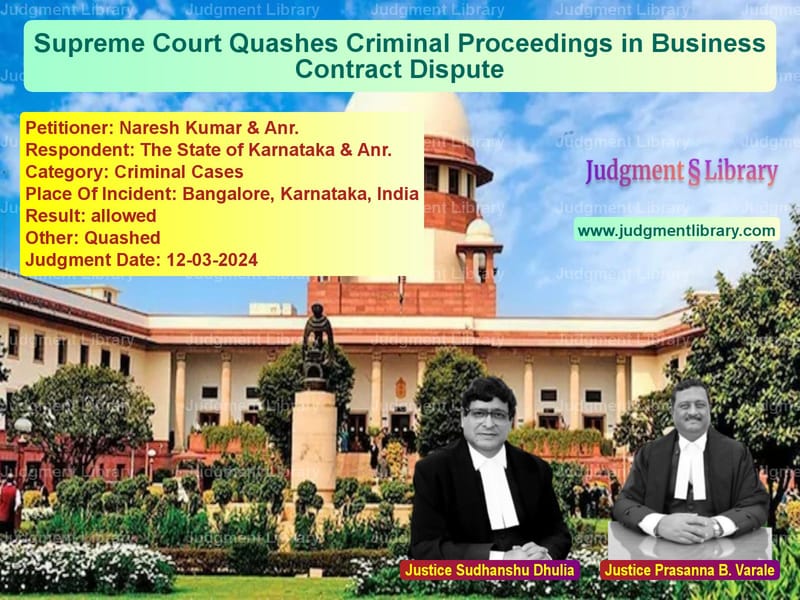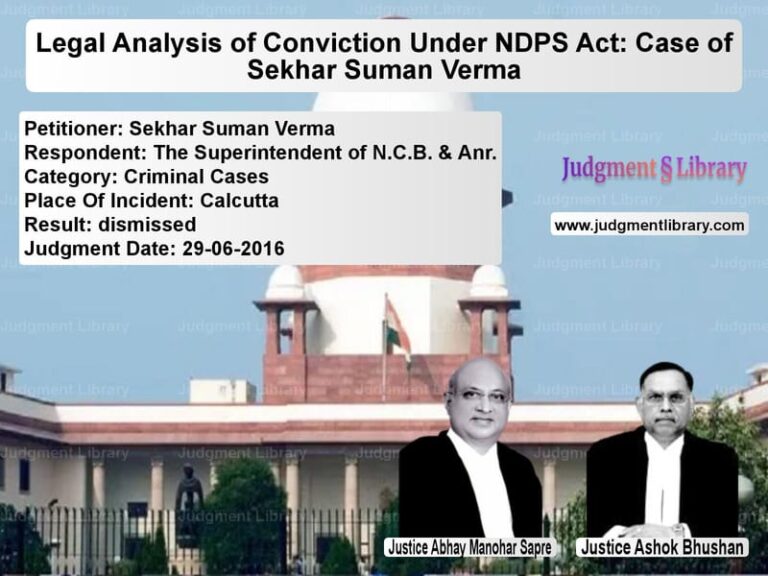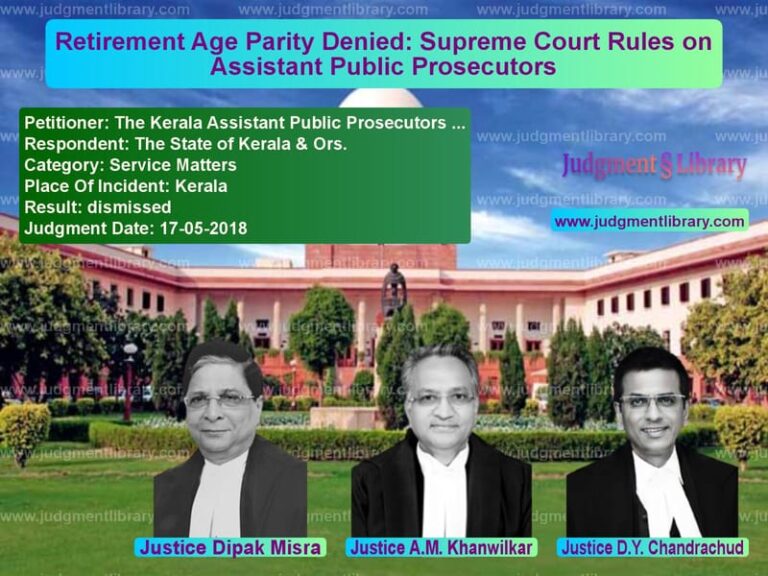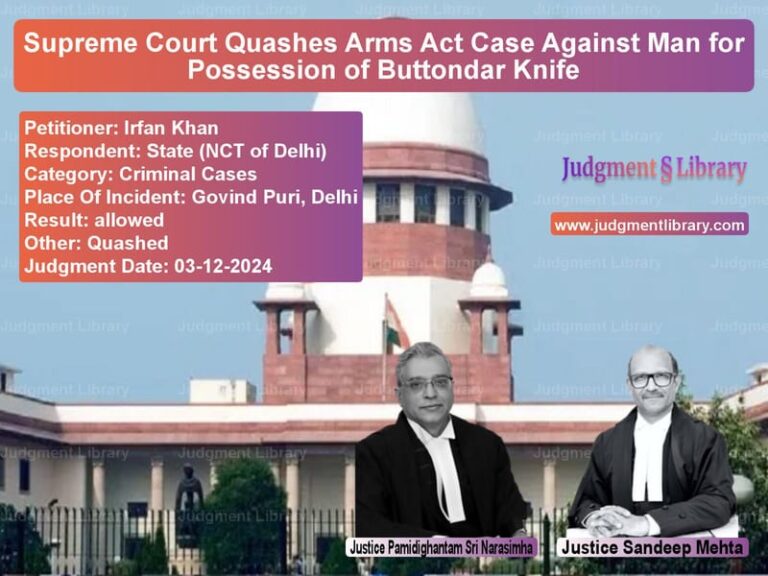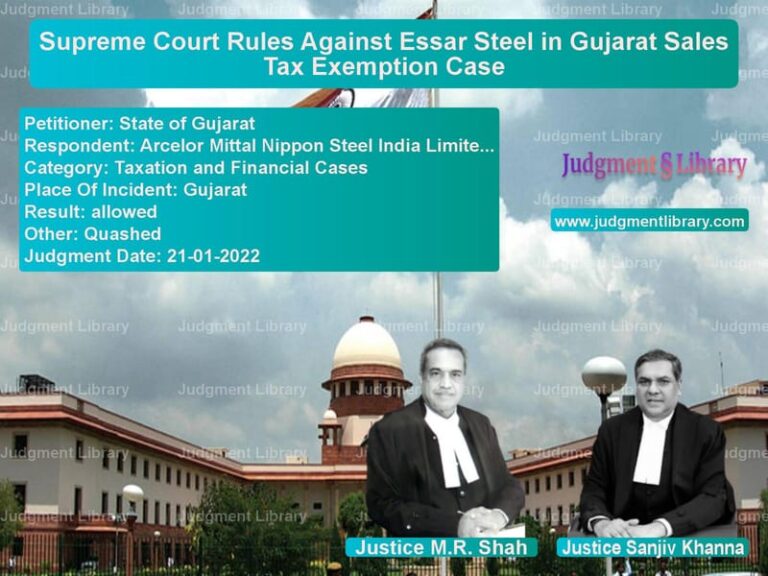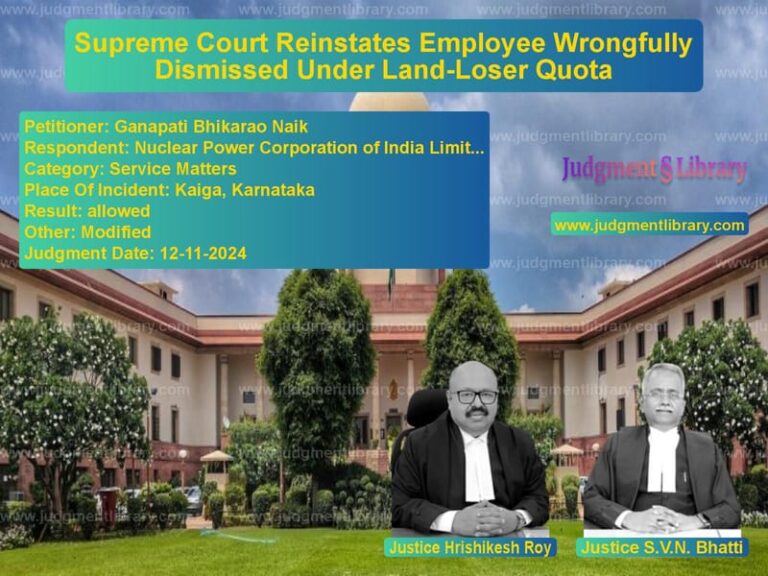Supreme Court Quashes Criminal Proceedings in Business Contract Dispute
The Supreme Court of India recently ruled in the case of Naresh Kumar & Anr. v. The State of Karnataka & Anr., addressing the misuse of criminal proceedings in what was essentially a civil dispute over a business contract. The case revolved around an agreement for assembling and delivering bicycles, leading to allegations of criminal breach of trust and cheating. However, the Court found no criminal intent and quashed the proceedings.
Background of the Case
The appellants, Naresh Kumar and another official, were the Assistant Manager (Marketing) and Managing Director of a bicycle manufacturing company. The complainant, Respondent No. 2, was awarded a contract to assemble, transport, and deliver bicycles at a rate of Rs. 122 per bicycle. The complainant claimed to have assembled 83,267 bicycles and raised invoices amounting to Rs. 1,01,58,574. However, he alleged that only Rs. 35,37,390 was paid, prompting him to file an FIR against the appellants under Sections 406, 420, and 506 of the Indian Penal Code.
Settlement Agreement and Legal Dispute
Following the FIR, a compromise deed was signed between the parties on 27th December 2017, under which an additional Rs. 26 lakh was paid to the complainant. This payment was deposited in his bank account on 29th December 2017. The appellants argued that the settlement resolved the dispute, and no criminal proceedings were warranted. However, the complainant later claimed that he was coerced into the agreement and continued to press charges.
High Court Ruling
The Karnataka High Court rejected the appellants’ plea to quash the FIR, stating that:
- The appellants initially claimed that only 28,995 bicycles were assembled, making them liable for Rs. 35 lakh.
- However, they later paid Rs. 62 lakh, suggesting an admission that more bicycles were assembled.
- This discrepancy indicated an intent to cheat from the outset.
- Therefore, a prima facie case of cheating was made out, warranting criminal prosecution.
Petitioners’ Arguments
The appellants, through their counsel, contended:
- The dispute was purely civil and should not have been turned into a criminal case.
- The payment of Rs. 62 lakh was part of the settlement and not an admission of liability.
- The complainant willingly accepted the additional payment and did not file an FIR alleging coercion at the time of settlement.
- Courts have previously held that business disputes should not be criminalized unless there is clear evidence of fraud or cheating.
Respondents’ Arguments
The complainant and the state argued:
- The initial payment was significantly lower than the amount due, suggesting dishonesty from the beginning.
- The settlement was forced upon the complainant, and he had no choice but to accept it.
- Merely labeling the case as a civil dispute should not prevent criminal action when elements of cheating are present.
Supreme Court’s Observations
The Supreme Court analyzed the case and made the following key observations:
- The dispute was primarily civil: The case involved a contractual disagreement over the number of bicycles assembled and payments made.
- No criminal intent was proven: There was no evidence to show that the appellants had fraudulent intent from the outset.
- Settlement agreements should be respected: The complainant willingly accepted the additional Rs. 26 lakh and did not challenge the agreement at the time.
- No FIR was filed alleging coercion: The claim that the settlement was forced appeared to be an afterthought.
Key Judicial Remarks
In its ruling, the Supreme Court emphasized:
“Merely because a dispute is about non-payment under a contract does not automatically make it a criminal offense. If such cases are criminalized, every commercial transaction could lead to criminal charges.”
The Court also stated:
“The settlement was reached voluntarily, and no coercion was alleged at the time. Courts must ensure that criminal law is not misused to settle civil disputes.”
Final Judgment
The Supreme Court quashed the criminal proceedings and ruled:
- The FIR against the appellants is set aside.
- The dispute should be resolved through civil remedies, not criminal prosecution.
- The High Court’s order was incorrect and is overturned.
Conclusion
This ruling sets a significant precedent in business contract disputes, reaffirming that contractual disagreements should not be converted into criminal cases unless clear fraudulent intent is proven. The judgment protects businesses from harassment through criminal litigation and emphasizes the importance of enforcing settlements in commercial disputes.
Petitioner Name: Naresh Kumar & Anr..Respondent Name: The State of Karnataka & Anr..Judgment By: Justice Sudhanshu Dhulia, Justice Prasanna B. Varale.Place Of Incident: Bangalore, Karnataka, India.Judgment Date: 12-03-2024.
Don’t miss out on the full details! Download the complete judgment in PDF format below and gain valuable insights instantly!
Download Judgment: naresh-kumar-&-anr.-vs-the-state-of-karnata-supreme-court-of-india-judgment-dated-12-03-2024.pdf
Directly Download Judgment: Directly download this Judgment
See all petitions in Fraud and Forgery
See all petitions in Contract Disputes
See all petitions in Public Interest Litigation
See all petitions in Judgment by Sudhanshu Dhulia
See all petitions in Judgment by Prasanna Bhalachandra Varale
See all petitions in allowed
See all petitions in Quashed
See all petitions in supreme court of India judgments March 2024
See all petitions in 2024 judgments
See all posts in Criminal Cases Category
See all allowed petitions in Criminal Cases Category
See all Dismissed petitions in Criminal Cases Category
See all partially allowed petitions in Criminal Cases Category

